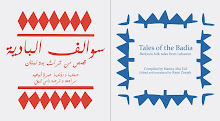It has been smoldering for 150, 50, 30, or 17 years, depending on who you read. This week, the sleeping dragon woke up, infuriated by 3 years of relentless drumming. The civil war is upon us once again. As I write, there are sounds of explosions and automatic weapons fire in my neighborhood. There is fighting in most of West Beirut: Ras el Nabeh, Mazraa, Barbour, but also Rawsheh, Sakiet al Janzir and Ayn el Tineh, near the official residence of the speaker of the parliament and the head of the Amal movement, Nabih Berri.
A quick round up of the latest events: out of the blue, and just when we thought they were going to come to some sort of agreement, the belligerents increased the pressure. The Siniora government took a decision that will go into the annals of the nation, famously or infamously, depending on who wins the round and gets to write history. It declared illegal the communication network of the Resistance (led and dominated by Hizbullah) and called for the army and the internal security to implement the decree. It also sought support from the UN security council on this issue.
Communication is the backbone of war and without it both resistance and resistants are exposed. Hizbullah's command and control is impressive, and this is what allowed it to fend off the Israeli attacks in July and August 2006. It was specifically mentioned in the Winograd report as the Resistance's main strength, and the report also called for its destruction. For Hizbullah, giving up the communications network is tantamount to disarming. This, of course it will not do, especially that the party is listed as a terrorist organization in the US, and that there is a death warrant on its leadership. They are convinced that the Israelis will hunt them down one by one, and will eliminate them, as they have done with many before them, latest being Imad Mughniyyieh.
This governmental decision came on the morning of the Worker's Union strike to protest the high costs of living. The Union is close to the Opposition led by Hizbullah, which used the opportunity to make a show of strength in Beirut. The airport road was closed, and tens of neighborhood thugs, mostly belonging to the Amal movement, an allied Shi'a party were unleashed . They went on a rampage called "civil demonstration". The thugs on the other side, mostly from the Sunni Future movement, met them in the streets, and stone throwing quickly became AK47 rapid fire. After a while both sides upgraded to rocked propelled grenades. That was last night.
Today was quiet, everybody was waiting. Hassan Nasrallah, Hizbullah's leader maximo had promised a press conference at 4 pm. What he said, we expected to hear: that this had been the last straw, that targeting the communication network is the same thing as targeting the Resistance's weapons, that those who dare to touch the weapons will be treated as traitors, and we all know the fate of traitors. He also gave an ultimatum to the government: either withdraw its decrees or face the consequences. Another important thing he said is that he does not fear the Shi`a-Sunni strife anymore, and called on the loyalists to stop using this issue to blackmail Hizbullah. Yet, he made Waleed Jumblat, the Druze leader, the target of his attacks and did not mention either Saad Hariri or Saudi Arabia. I am sure the speech will be dissected and deconstructed ad infinitum tomorrow, so I'll leave it at that.
Saad Hariri, the head of the Future movement, appeared on TV a few minutes ago and read from a prepared statement. He derided Hassan N. a little bit and defended the government's decisions. His discourse was very "islamist" and "arabist" and contained a lot of one-upmanship, especially on Israel and Palestine. He attributed the position of Hizbullah towards the decrees to a "misunderstanding", but whoever wrote the speech for him could not resist the urge of the insulting bon mot and said also "lack of understanding", in other words stupidity. This won't go down very well.
Hariri gave a 3-steps plan to diffuse the tension and stop the hostilities: first, the government's decrees will be considered as "misunderstood" and given to the army to deal with. If the army decides not to follow up on them, then this decision would be accepted. He then asked for a complete withdrawal of all armed elements, the removal of the barricades and the opening of the airport. And thirdly, he asked for the immediate election of Army General Michel Sleiman as the new president. Sleiman will then lead the new rounds of dialog between the different parties, in order to find a compromise over the future of Lebanon.
Since then, there has been more fighting, and there were also several very loud explosions. It doesn't look like Hariri's offer will be readily accepted.
Thursday, May 8, 2008
Subscribe to:
Post Comments (Atom)








+081.jpg)



1 comment:
May the leaders of Lebanon find a way to resolve all the issues so that the people of Lebanon - all people living inside Lebanon - have justice, peace, bread, liberty, and security. I know that you are a secularist but I will presume to say that my prayers are with you; may God heal and protect you all.
Post a Comment